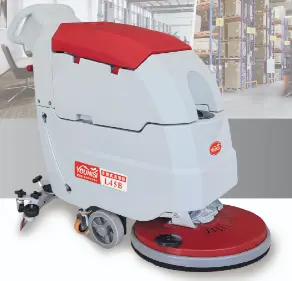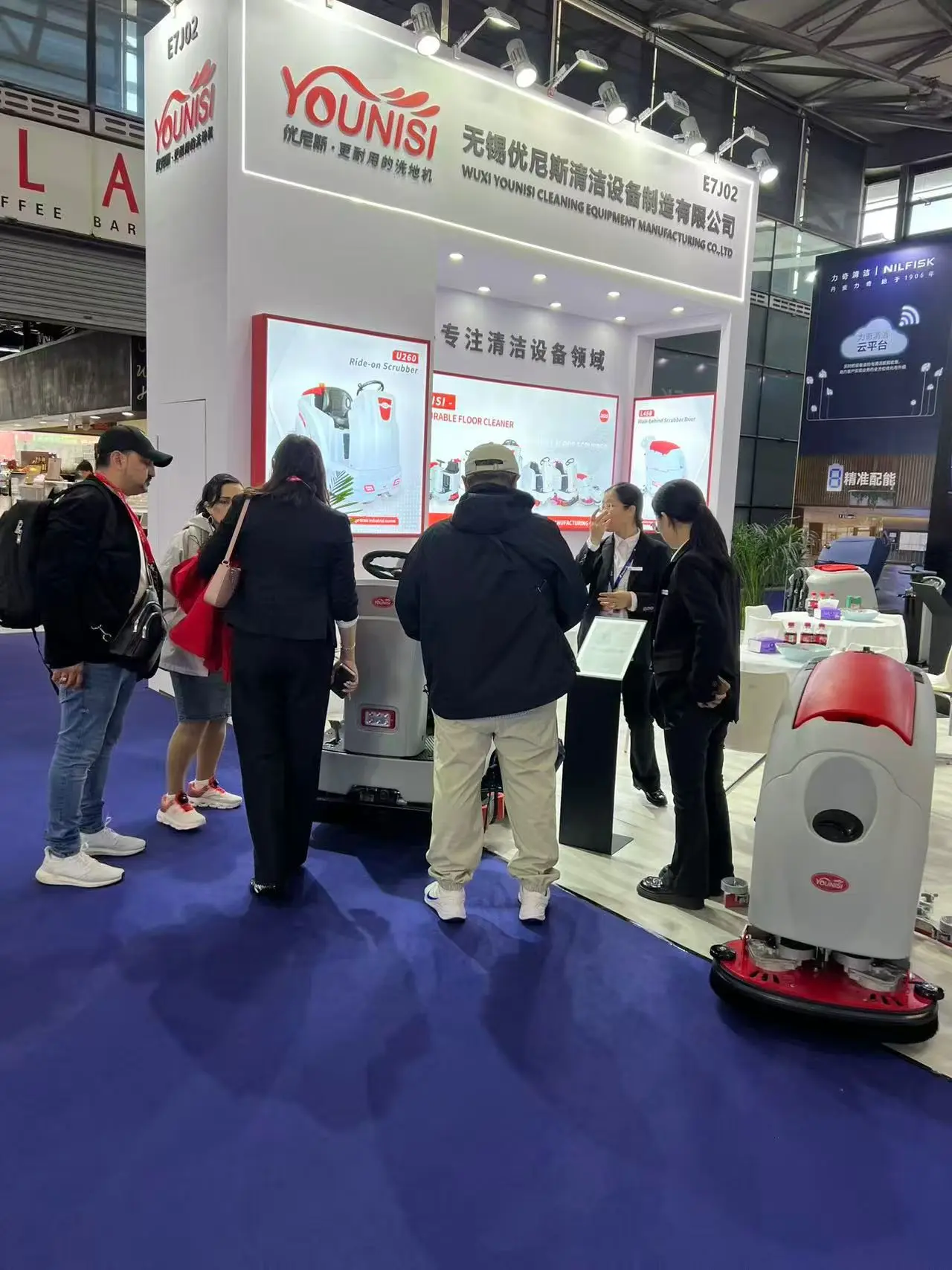A Guide to Finding Top Industrial Cleaning Equipment Suppliers in New Zealand
Selecting dependable industrial cleaning equipment dealers New Zealand is crucial for ensuring seamless operations. Reliable industrial cleaning equipment dealers New Zealand provide access to high-quality tools tailored to your cleaning requirements. This choice significantly influences your efficiency and helps minimise unnecessary expenses. By collaborating with trustworthy industrial cleaning equipment dealers New Zealand, you can achieve superior outcomes while benefiting from their industry expertise.
Key Takeaways
- Think about what cleaning tasks you need to do. Knowing your work needs helps you pick the best tools for the job.
- Decide how much money you can spend on equipment. Look at both the starting price and future costs to get good value.
- Pick suppliers nearby for quicker delivery and better help. Local sellers know your area and can assist you quickly when needed.
Understand Your Cleaning Needs
Evaluate Industry-Specific Requirements
Before choosing industrial cleaning equipment, you need to assess the specific needs of your industry. Different industries have unique cleaning challenges. For example, food processing facilities require equipment that meets strict hygiene standards, while construction sites need heavy-duty tools to handle tough debris. Think about the surfaces you clean, the type of dirt or waste you deal with, and the frequency of cleaning.
You should also consider the size of your workspace. Large warehouses may need ride-on Scrubbers, while smaller areas might only require compact machines. By understanding these requirements, you can narrow down your options and focus on equipment that suits your operations. This step ensures you invest in tools that deliver the best results for your specific environment.
Determine Budget Constraints
Budget plays a crucial role in your decision-making process. Start by setting a clear budget range for your cleaning equipment. This helps you avoid overspending and ensures you get value for your money. Look for suppliers who offer flexible pricing options, such as leasing or financing plans. These options can make high-quality equipment more affordable.
When comparing costs, don’t just focus on the initial price. Consider long-term expenses like maintenance, energy consumption, and replacement parts. A slightly higher upfront cost might save you money in the long run if the equipment is durable and efficient. Many industrial cleaning equipment dealers New Zealand provide detailed cost breakdowns, helping you make an informed choice.
Research Industrial Cleaning Equipment Dealers New Zealand
Benefits of Choosing Local Suppliers
Choosing local suppliers for your industrial cleaning equipment offers several advantages. Local suppliers understand the specific needs of businesses in New Zealand. They are familiar with the industries and environmental conditions in the region. This knowledge allows them to recommend equipment that works best for your operations.
Local suppliers also provide faster delivery times. You can avoid long waiting periods often associated with international shipping. This ensures you receive your equipment promptly, minimising downtime in your operations. Additionally, local suppliers are more accessible for on-site consultations or demonstrations. You can see the equipment in action before making a purchase.
Another benefit is the support you receive after purchasing. Local suppliers often have dedicated teams for maintenance and repairs. If your equipment breaks down, they can quickly provide assistance. This reduces the risk of prolonged disruptions to your workflow. Building a relationship with a local supplier also fosters trust and ensures better service in the long term.
Utilise Online Reviews and Directories
Online reviews and directories are valuable tools for finding reliable industrial cleaning equipment dealers New Zealand. Reviews give you insights into the experiences of other customers. Look for reviews that mention product quality, customer service, and delivery times. These factors help you gauge the reliability of a supplier.
Directories simplify your search by listing multiple suppliers in one place. Many directories categorise suppliers based on their offerings, making it easier to find those that match your needs. Some directories also include ratings and customer feedback. This information helps you compare suppliers and make an informed decision.
When reading reviews, focus on patterns rather than isolated comments. Consistently positive feedback indicates a trustworthy supplier. On the other hand, repeated complaints about the same issue may be a red flag. Use this information to narrow down your options and choose a supplier that aligns with your expectations.
Tip: Combine online research with direct communication. Contact suppliers to ask questions about their products and services. This helps you verify the information you find online and ensures you make a well-informed choice.
Assess Supplier Credibility
Check Certifications and Compliance
You should always verify that a supplier meets industry standards and regulations. Certifications demonstrate that the supplier adheres to recognised quality and safety benchmarks. For example, ISO certifications indicate that the supplier follows international standards for quality management. These certifications ensure that the equipment you purchase is reliable and safe to use.
Ask the supplier for proof of compliance with New Zealand’s health and safety regulations. This is particularly important for industries like food processing or healthcare, where strict hygiene standards apply. Suppliers who comply with these regulations are more likely to provide equipment that meets your operational needs.
Tip: Keep an eye out for suppliers who are members of professional organisations. Membership often reflects a commitment to maintaining high standards and staying updated on industry trends.
Review Experience and Reputation
A supplier’s experience in the industry speaks volumes about their reliability. Suppliers with years of experience understand the unique challenges businesses face. They can recommend equipment tailored to your specific requirements. Look for suppliers who have a proven track record of serving businesses similar to yours.
Reputation is equally important. You can assess this by checking testimonials, case studies, or references provided by the supplier. Positive feedback from other businesses indicates that the supplier delivers on their promises. You can also ask for a list of past clients to gain further insights into their performance.
Online platforms are another valuable resource. Search for reviews about the supplier’s customer service, product quality, and response times. Consistently high ratings suggest a dependable supplier. However, if you notice repeated complaints, it may be a sign to look elsewhere.
Note: Building a relationship with a reputable supplier ensures long-term benefits. Reliable suppliers often provide better after-sales support and are more likely to address any issues promptly.
Compare Equipment and Services
Product Range and Quality Standards
When evaluating suppliers, you should examine their product range. A wide selection of equipment ensures you can find tools that match your specific cleaning needs. Look for suppliers offering various options, such as floor scrubbers, pressure washers, and vacuum cleaners. This variety allows you to choose equipment that suits your industry and workspace.
Quality standards are equally important. High-quality equipment lasts longer and performs better. You should ask suppliers about the materials used in their products and whether they meet recognised safety and performance standards. Reliable suppliers often provide detailed product specifications, helping you understand what you are purchasing.
Tip: Request a demonstration of the equipment. Seeing it in action helps you assess its performance and suitability for your tasks.
After-Sales Support and Warranty Policies
After-sales support plays a crucial role in maintaining your equipment. You should choose suppliers who offer comprehensive support services, such as maintenance, repairs, and spare parts availability. Quick and efficient support minimises downtime and keeps your operations running smoothly.
Warranty policies also deserve attention. A good warranty reflects the supplier’s confidence in their products. You should review the warranty terms carefully, including coverage duration and conditions. Some suppliers may even offer extended warranties for added peace of mind.
Building a relationship with trusted industrial cleaning equipment dealers New Zealand ensures you receive reliable after-sales support and quality products.
Finalise Your Decision
Request and Analyse Quotes
Once you have shortlisted potential suppliers, request detailed quotes from each of them. A comprehensive quote should include the cost of the equipment, delivery charges, and any additional fees for installation or training. Some suppliers may also provide optional services like extended warranties or maintenance packages. Make sure to ask for these details upfront.
When analysing quotes, compare more than just the price. Look at the value each supplier offers. For example, a slightly higher price might include better after-sales support or longer warranty coverage. Create a comparison table to evaluate the quotes side by side. This approach helps you identify which supplier provides the best overall deal.
Tip: Don’t hesitate to negotiate. Many suppliers are open to discussing discounts or flexible payment terms, especially for bulk purchases.
Make a Well-Informed Choice
After reviewing the quotes, consider all the factors you’ve evaluated throughout the process. Think about the supplier’s credibility, product quality, and the level of support they offer. Choose a supplier who aligns with your operational needs and long-term goals.
Before finalising your decision, communicate with the supplier to clarify any doubts. Confirm the delivery timeline, warranty terms, and after-sales services. This ensures there are no surprises later.
Building a partnership with the right supplier sets the foundation for a smooth and efficient cleaning operation. Take your time to make a choice that benefits your business in the long run.
Finding the right industrial cleaning equipment supplier involves several steps. You should evaluate your needs, research suppliers, and compare their offerings. Thorough research ensures you make informed decisions.
Tip: Build a strong partnership with your chosen supplier. Reliable suppliers improve your operations and provide long-term benefits. Take action today to secure the best equipment for your business.
FAQ
What factors should you prioritise when choosing a supplier?
Focus on product quality, supplier credibility, and after-sales support. These factors ensure reliable equipment, smooth operations, and long-term satisfaction.
How can you verify a supplier’s reputation?
Check online reviews, testimonials, and case studies. Speak with past clients to understand their experiences. Consistent positive feedback indicates a trustworthy supplier.
Is it better to buy or lease industrial cleaning equipment?
Leasing suits businesses with budget constraints or short-term needs. Buying works better for long-term use and offers greater control over the equipment.
Tip: Evaluate your financial goals and operational requirements before deciding.



